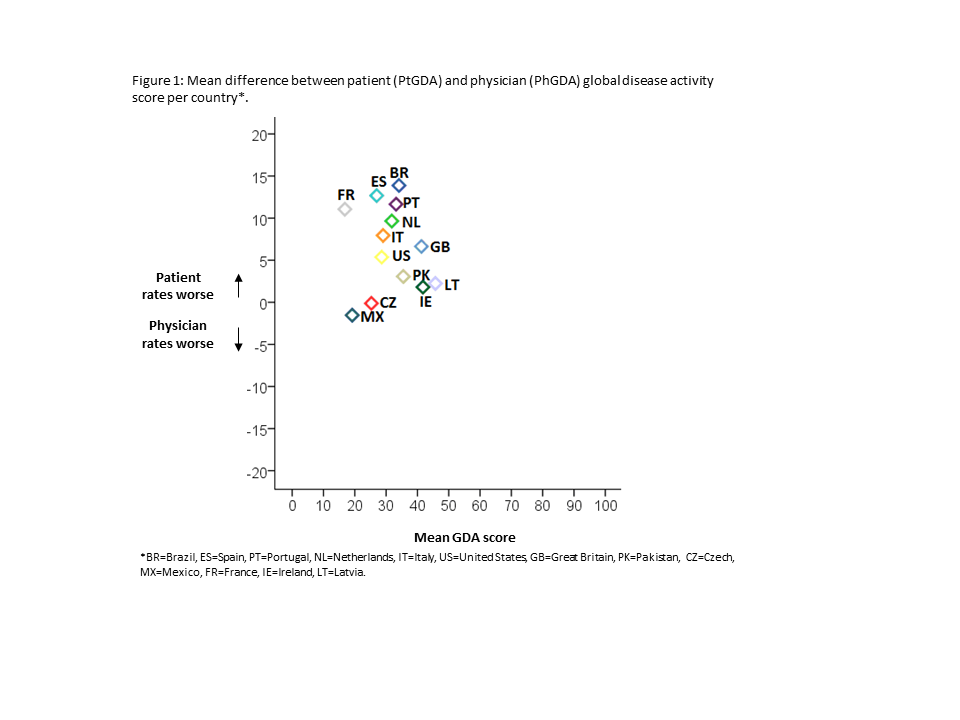Session Information
Session Type: Abstract Submissions (ACR)
Disclosure:
E. Gvozdenovic,
None;
R. Wolterbeek,
None;
C. F. Allaart,
None;
C. Brenol,
None;
A. Chopra,
None;
M. Dougados,
None;
P. Emery,
None;
D. van der Heijde,
None;
T. W. J. Huizinga,
None;
J. Kay,
None;
E. Martín Mola,
None;
R. J. Moots,
None;
J. A. P. Da Silva,
None;
J. S. Smolen,
None;
D. J. Veale,
None;
R. Landewe,
None.
« Back to 2013 ACR/ARHP Annual Meeting
ACR Meeting Abstracts - https://acrabstracts.org/abstract/assessment-of-global-disease-activity-in-rheumatoid-arthritis-by-patients-and-physicians-cultural-differences-among-countries-in-the-meteor-database/

